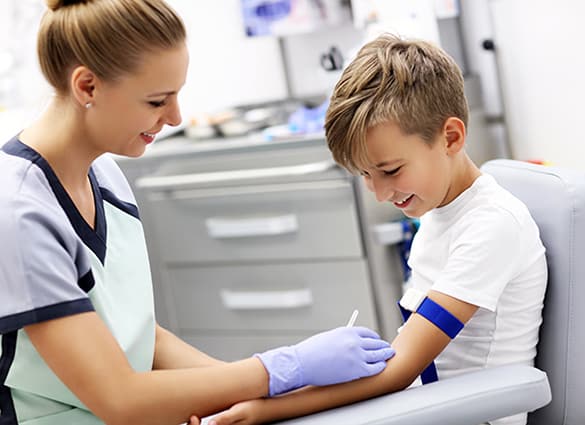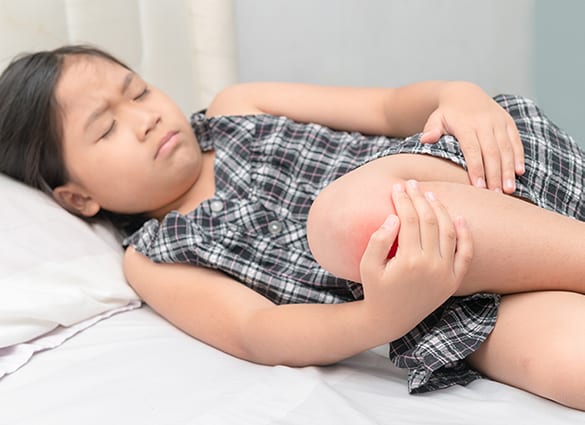
A group of illnesses
Arthritis in children is called ‘Juvenile Idiopathic Arthritis’, or JIA. This is actually a group of illnesses described under one name because they share similar symptoms. ‘Juvenile’ means that the arthritis begins before the child is 16 years old. ‘Idiopathic’ means that we don’t know exactly what causes it and ‘arthritis’ means that one or more joints are inflamed (i.e. swollen, stiff or painful).
What causes Juvenile Idiopathic Arthritis?
It is not known exactly what causes Juvenile Idiopathic Arthritis. Our bodies have an immune system that is responsible for fighting disease to keep us healthy. However, in JIA our body mistakes normal joints as foreign and attacks the joints, causing inflammation, joint damage and pain. This is referred to as an autoimmune disease.
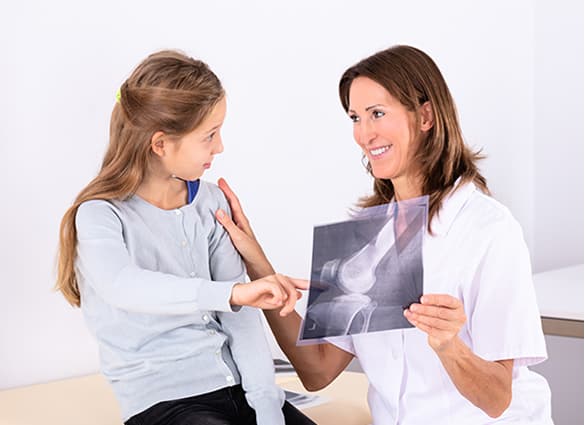
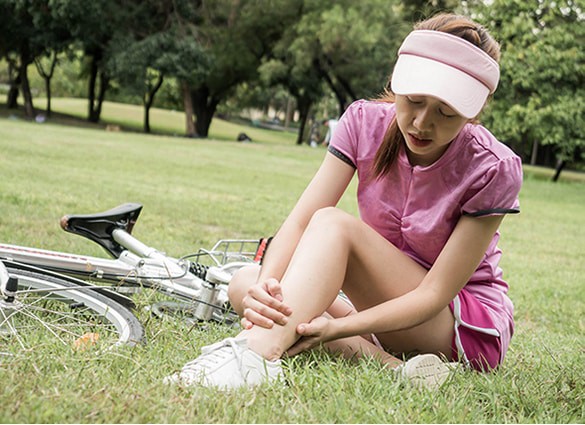
Symptoms of Juvenile Idiopathic Arthritis
What are the symptoms of Juvenile Idiopathic Arthritis?
- Joint swelling, pain, redness and warmth
- Joint stiffness – especially in the morning or after periods of rest
- Other symptoms may include fever, rash, fatigue, loss of appetite and weight loss.
- Eye inflammation
- Due to the ongoing underlying joint inflammation there is also a significant risk that, over time, the joints will become permanently damaged, leading to loss of joint movement.
How is Juvenile Idiopathic Arthritis diagnosed?
JIA can be difficult to diagnose because the symptoms can be different in different children and can be very similar to some other childhood illnesses. To diagnose JIA, a thorough medical history, physical examination and gait analysis will be performed. Blood tests will need to be ordered and sometimes x-rays of the affected joints will be requested.
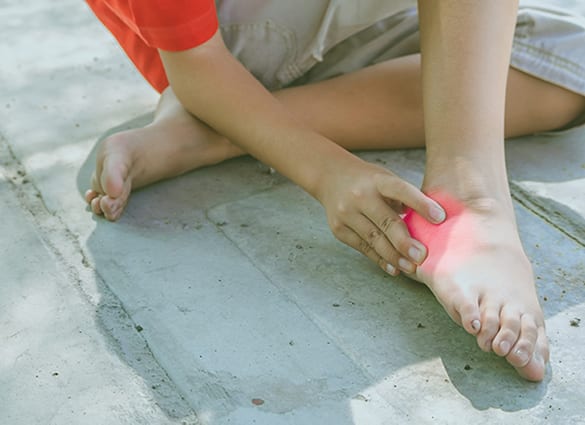

How is Juvenile Idiopathic Arthritis treated?
JIA affects each child differently so treatments are tailored to each individual child. A Rheumatologist will co-ordinate your treatment. Common treatments may include:
- Medication to reduce the inflammation
- Joint injections to reduce inflammation in a specific joint
- Orthotics, splints and footwear to support affected joints
- Specific exercises to keep the joints flexible and the surrounding muscles strong.
It is vital that JIA is identified and treated early, so joint deformity and damage is minimized. With early treatment, most JIA can be controlled and some of the long term consequences avoided.
How can Juvenile Idiopathic Arthritis affect my child’s feet?
Persistent joint inflammation in the feet and ankles can cause foot deformities like bunions, hammertoes, collapsed arches and metatarsalgia. With early podiatric intervention you may be able to reduce foot and ankle pain and minimize the likelihood of developing permanent foot deformities.
If your child complains of foot or ankle pain, swelling or stiffness see our experienced Podiatrists for professional podiatric care.
